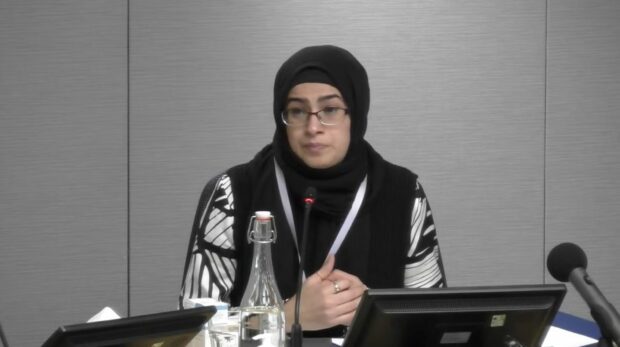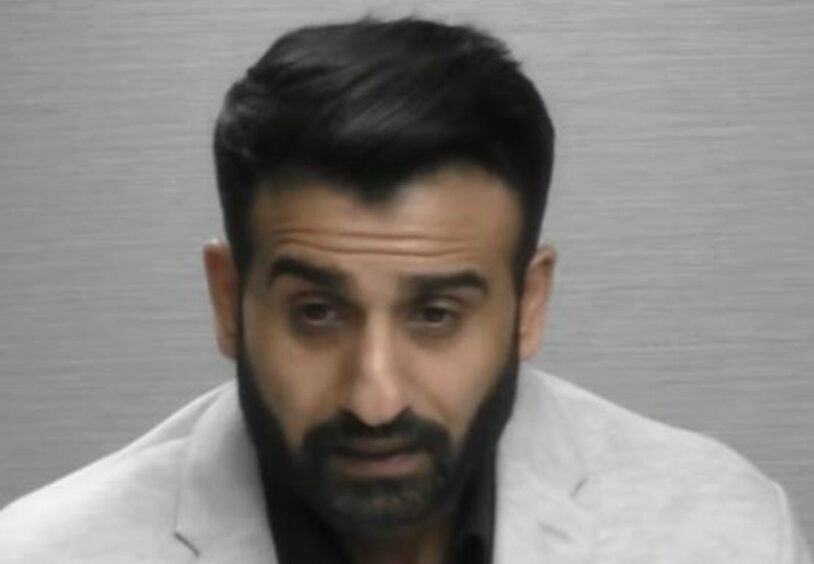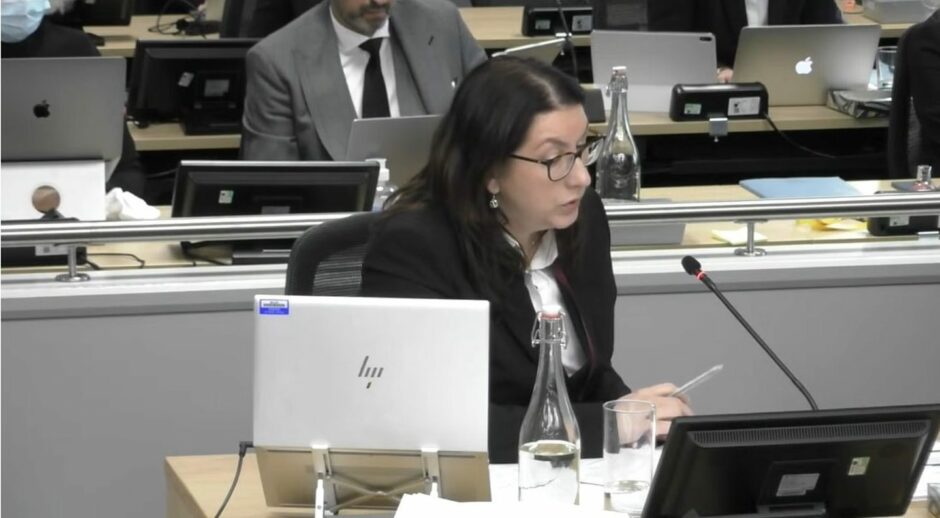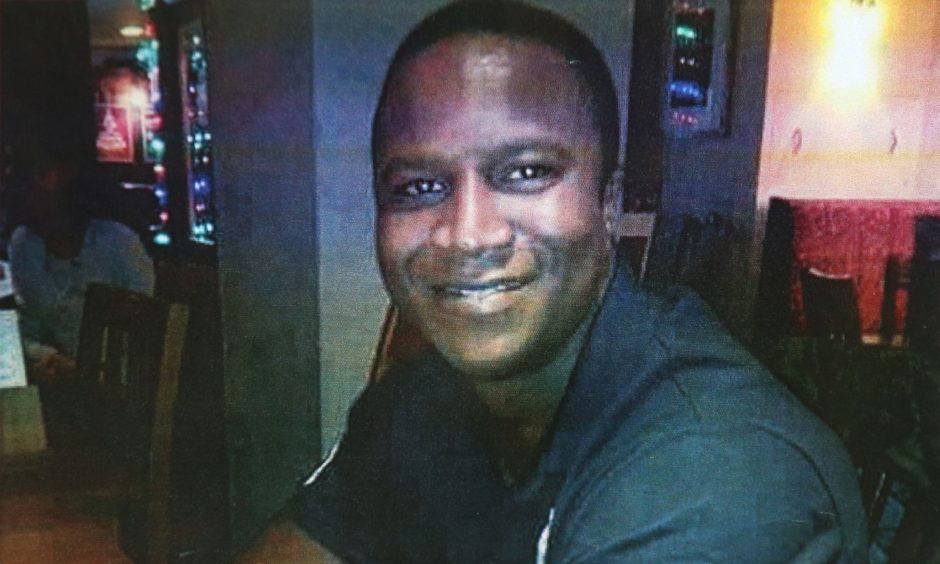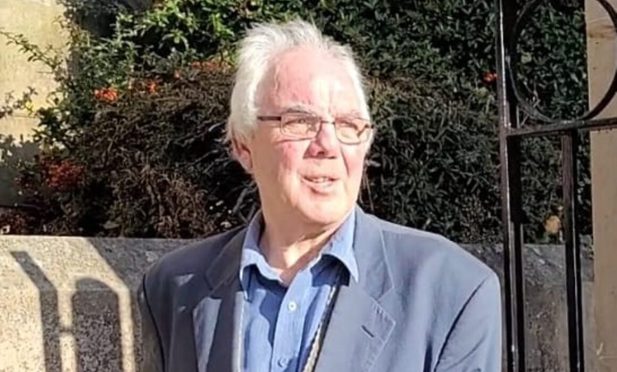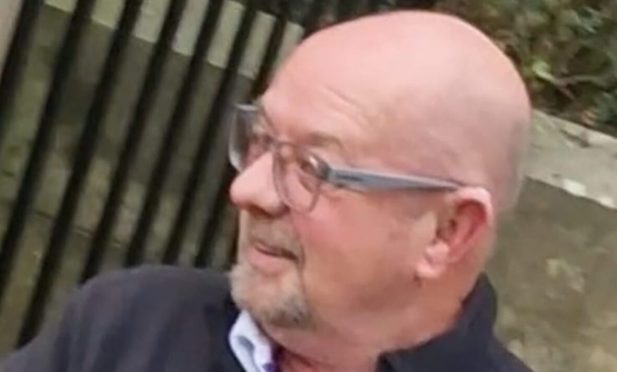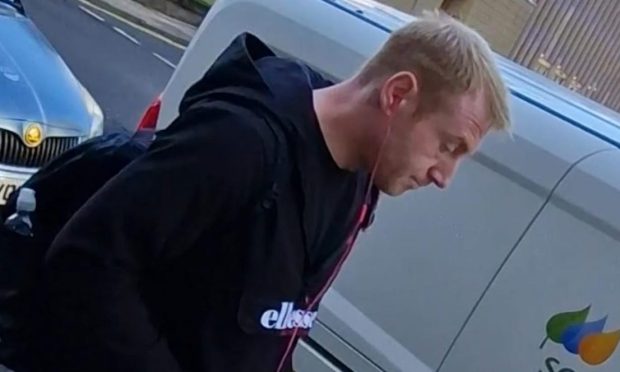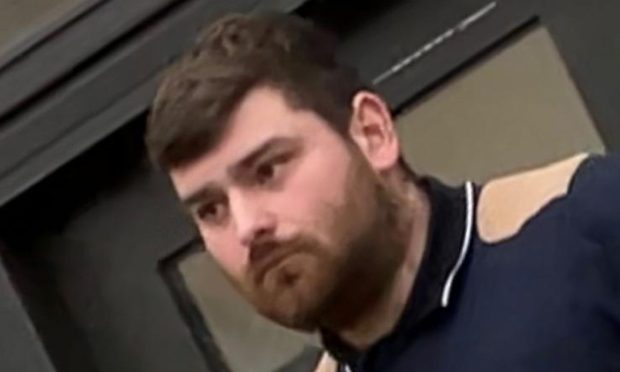A woman has told the Sheku Bayoh inquiry of her “traumatic nightmare experience” as she and her family were made to leave their house by police officers who told them it was being treated as a crime scene.
Saadia Rashid said police told her they did not need a warrant to search the property and she was left feeling she had no choice but to leave.
Mr Bayoh, 31, a father-of-two, died after he was restrained on the ground by police officers in Kirkcaldy, on May 3 2015.
The inquiry is investigating the circumstances of his death and whether race was a factor.
Mrs Rashid is the brother of Mr Bayoh’s friend Zahid Saeed, who said he and the deceased man had taken drugs and fought earlier that night.
Rushed from house
Mrs Rashid told the inquiry on Wednesday two officers initially arrived at her mother’s house, where she was staying, at around 8am on Sunday May 3 and told her they were looking for her brother.
She said they left when she said he was not there.
Around an hour later, police returned and told her the family needed to leave as they were looking for evidence and had to search the house.
The witness said no further explanation was given.
She said she asked for a warrant and was told they did not have one.
Angela Grahame KC, lead counsel to the inquiry, took her through her statement to the inquiry, saying: “You say ‘they said they didn’t need a warrant, that we had to vacate now, they said we didn’t have a choice and we had to let them in because this was a crime scene and they had to seal the house and search the house’.”
The KC asked whether any explanation was given as to why the house was considered a crime scene, to which Mrs Rashid replied: “No.”
The witness said she explained to officers she could not leave as her paralysed brother was in a wheelchair and she and her elderly mother could not move him on their own.
She also had two young children, aged two months and one-and-a-half but the officers did not offer any assistance and did nothing to help.
She told the inquiry she packed “in panic mode” and later discovered she had left behind vital items relating to her childcare but was told she could not go back into the house to collect them.
She said the family were treated with no compassion and the experience left them feeling like “second-class citizens”.
Claims of being ‘treated differently’
Ms Grahame referred the witness to her statement to the inquiry in which she described how, during the course of the day, “news of Shek had spread all over town” but she could not understand how this related to her family home.
She told the inquiry she was not aware of anything that would connect Mr Bayoh to the house.
Mrs Rashid said she had come to her mother’s house for rest after an emergency C-section when her baby was born and instead that day endured a “traumatic, nightmare experience that was uncalled for”.
In her inquiry statement she also said the family “felt almost like we were being treated differently because we were Pakistani and Muslims”.
Asked by Ms Grahame what it was about the officers’ behaviour that made her feel this way, Mrs Rashid said: “The fact that we were Muslims and wearing hijab, we were quite vulnerable at the time, had that been anyone else they would have been treated differently.”
She said she thinks they may have been treated with more compassion if they had been someone else.
The inquiry later heard from Mrs Rashid’s father Saeed Ahmed, who came to the house to help after his daughter rang to tell him what was happening.
He said police initially would not let him into the house even though he told them he was a carer for his son, a former paratrooper who was injured serving with the British Army in Iraq around 2002.
Police eventually let him in after some discussion amongst officers.
The inquiry, before Lord Bracadale in Edinburgh, continues.
